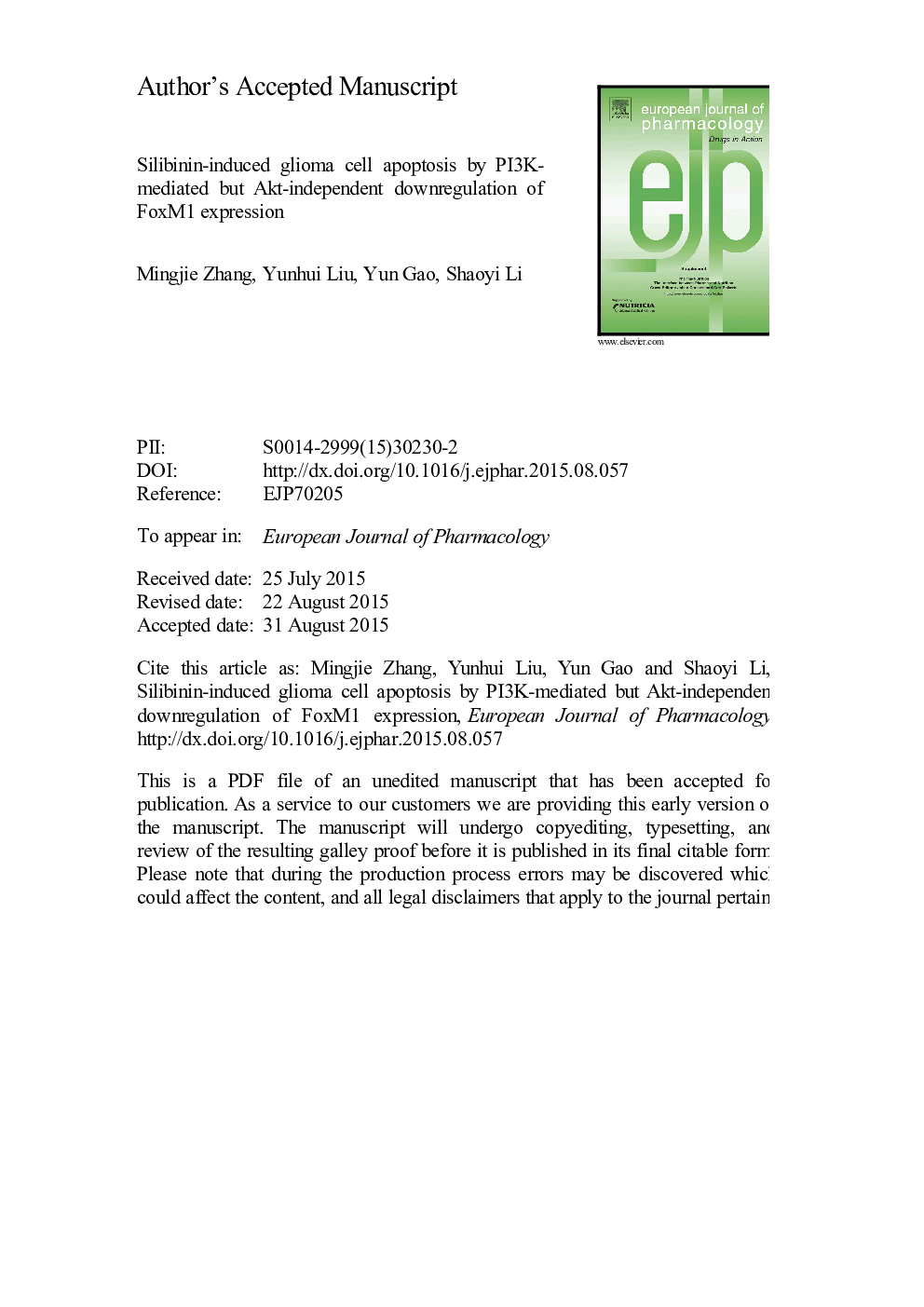| Article ID | Journal | Published Year | Pages | File Type |
|---|---|---|---|---|
| 5826877 | European Journal of Pharmacology | 2015 | 35 Pages |
Abstract
The oncogenic transcription factor Forkhead box M1 (FoxM1) is overexpressed in many human tumors, including glioma. As a critical regulator of the cell cycle and apoptosis-related genes, FoxM1 is a potential therapeutic target against human malignant glioma. Silibinin, a flavonoid isolated from Silybum marianum, dose-dependently reduced glioma cell proliferation, promoted apoptosis, and downregulated FoxM1 expression. Knockdown of FoxM1 by small hairpin RNA (shRNA) transfection also promoted glioma cell apoptosis and augmented the antiproliferative and pro-apoptotic properties of silibinin. Moreover, silibinin increased caspase-3 activation, upregulated pro-apoptotic Bax, and suppressed anti-apoptotic Bcl-2 expression, effects enhanced by FoxM1 knockdown. Silibinin treatment suppressed U87 cell PI3K phospho-activation, and simultaneous silibinin exposure, FoxM1 knockdown, and PI3K inhibition additively increased U87 cell apoptosis. Furthermore, PI3K inhibition reduced FoxM1 expression. Akt activity was also suppressed by FoxM1 downregulation but Akt inhibition did not alter FoxM1 expression. Thus, silibinin likely inhibited glioma cell proliferation and induced apoptosis through inactivation of PI3K and FoxM1, leading to activation of the mitochondrial apoptotic pathway. FoxM1 may be a novel target for chemotherapy against human glioma.
Related Topics
Life Sciences
Neuroscience
Cellular and Molecular Neuroscience
Authors
Mingjie Zhang, Yunhui Liu, Yun Gao, Shaoyi Li,
